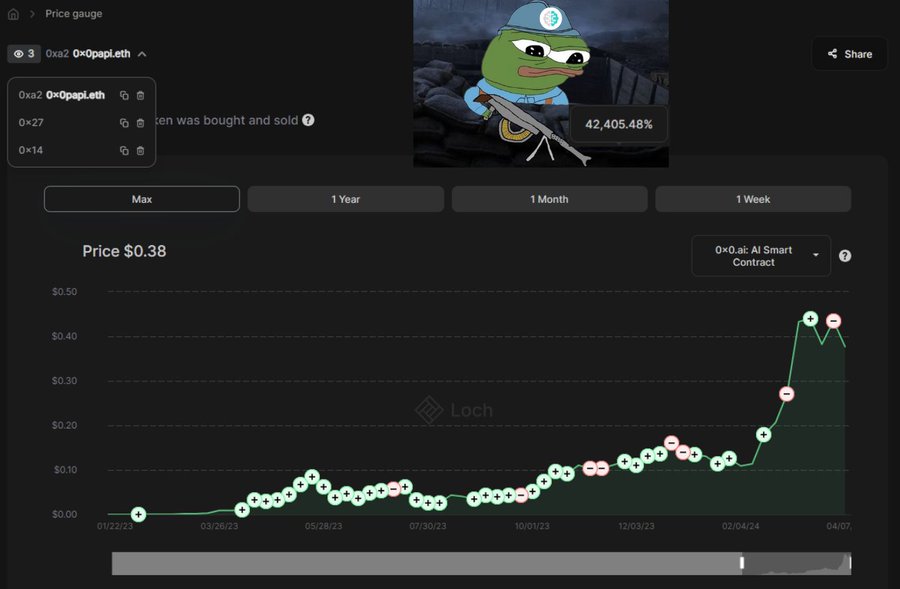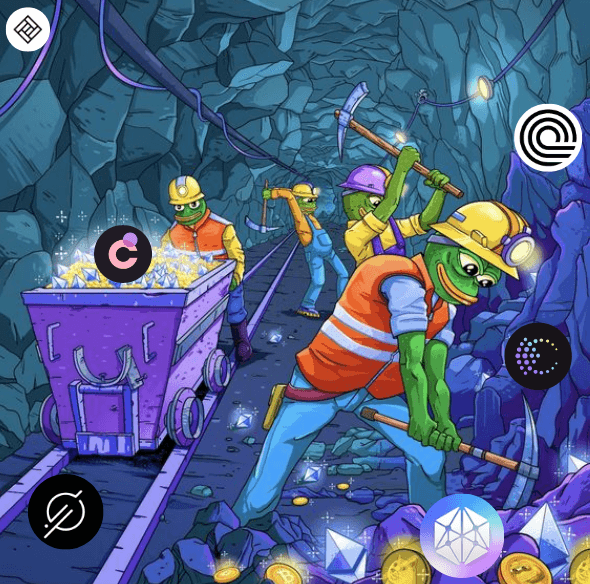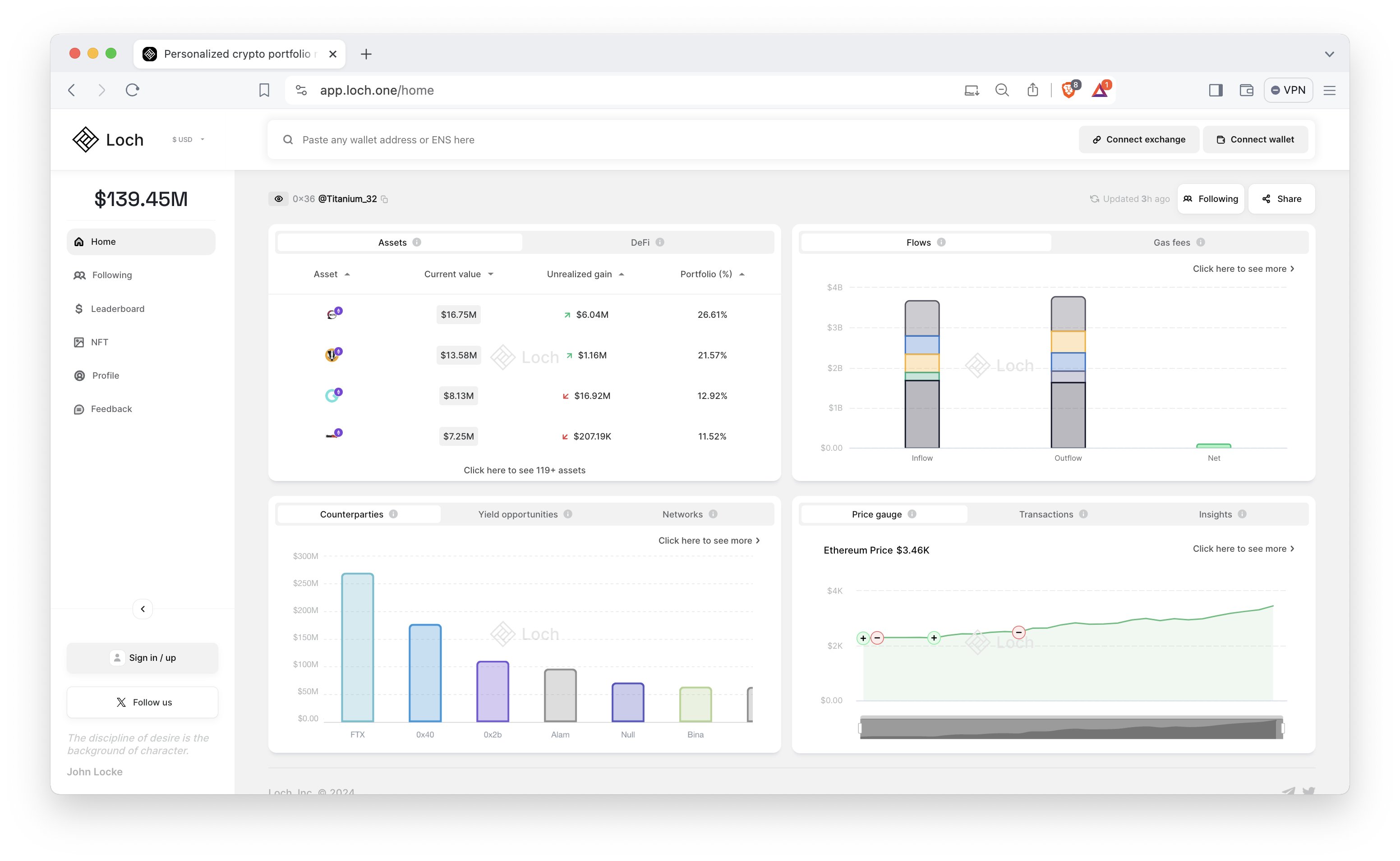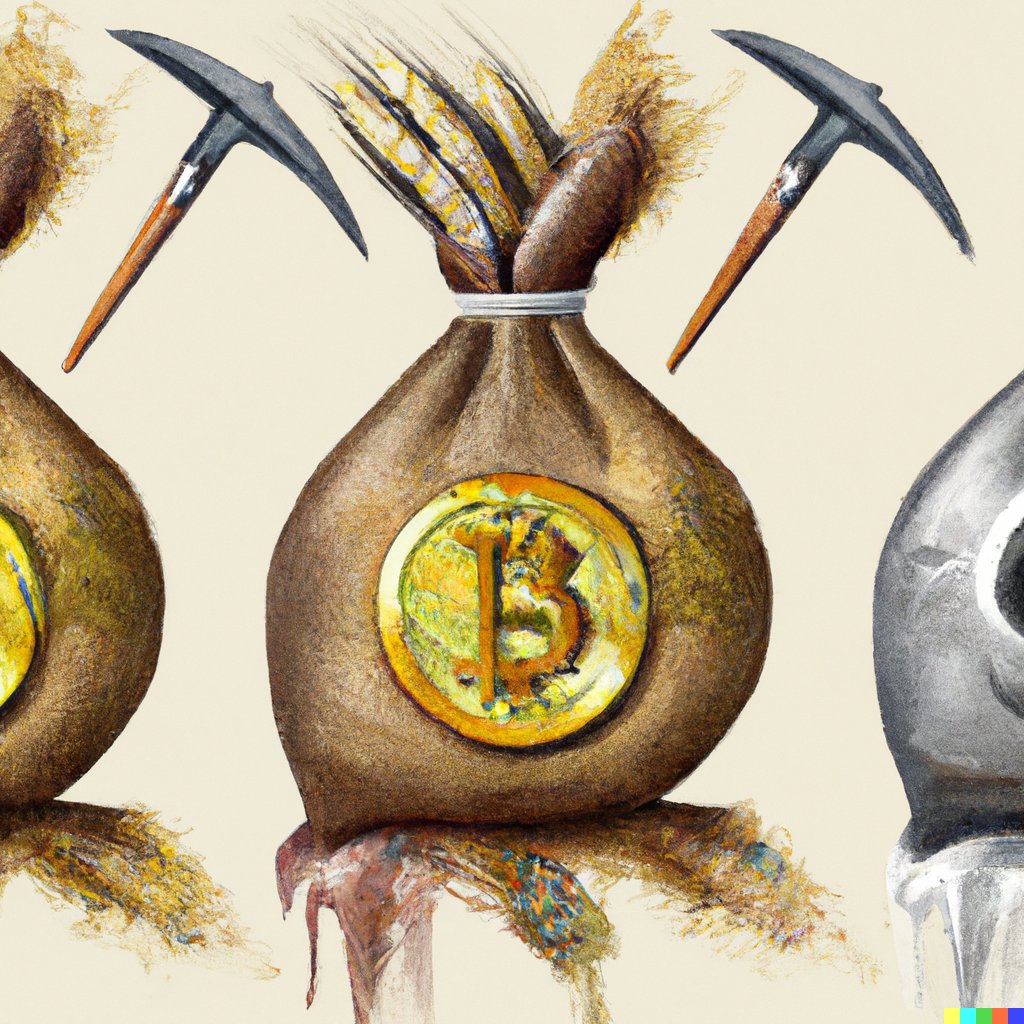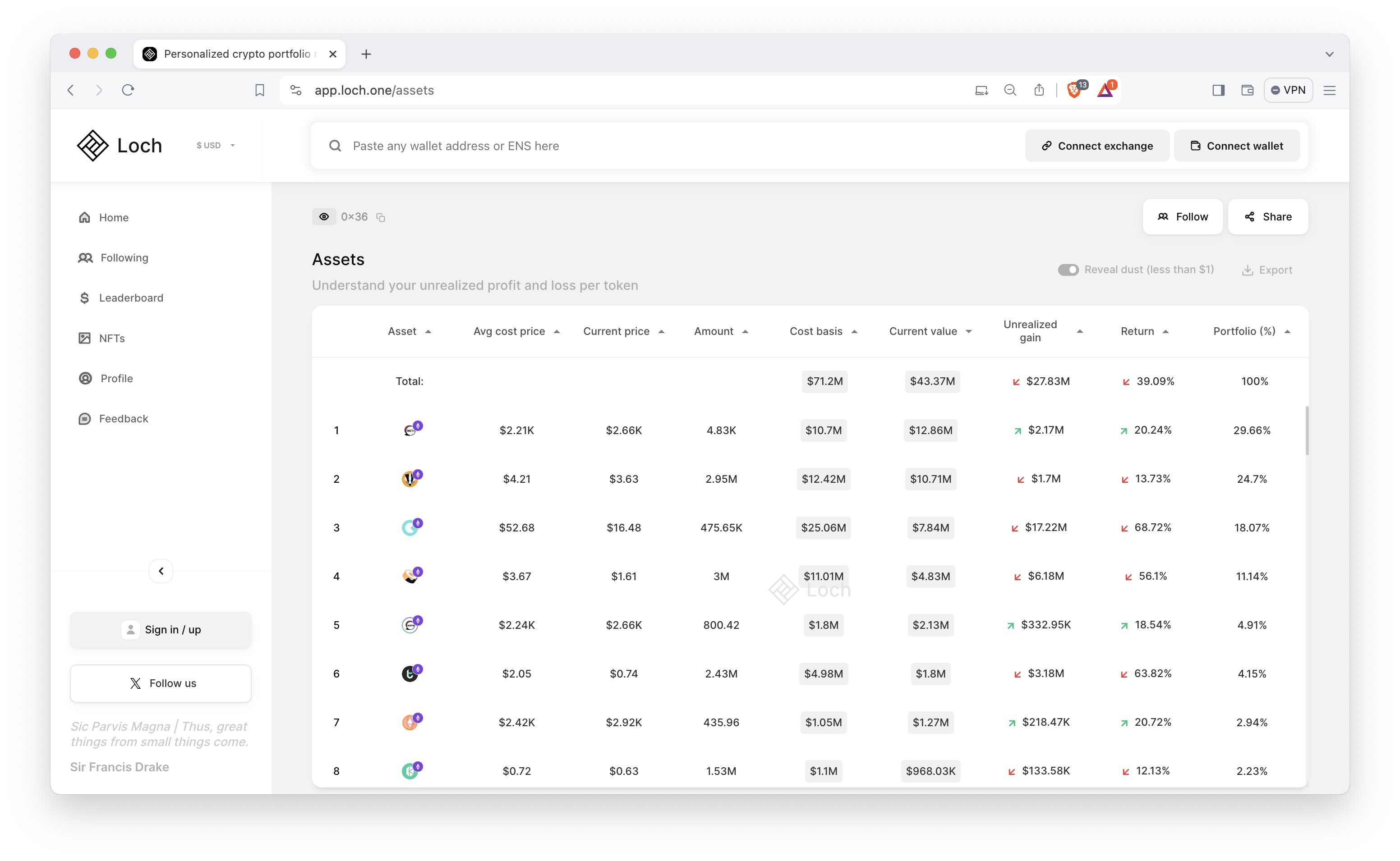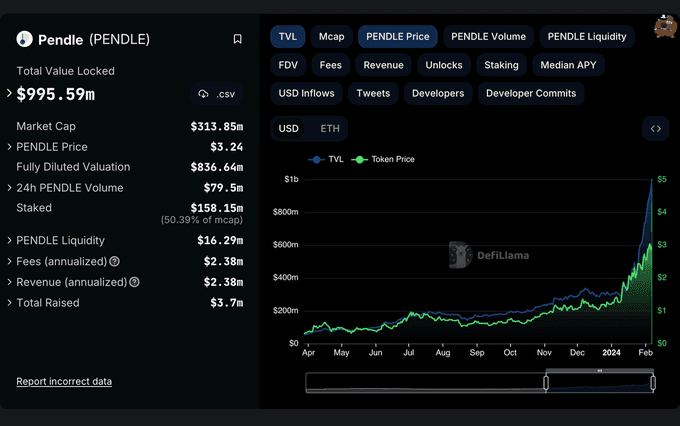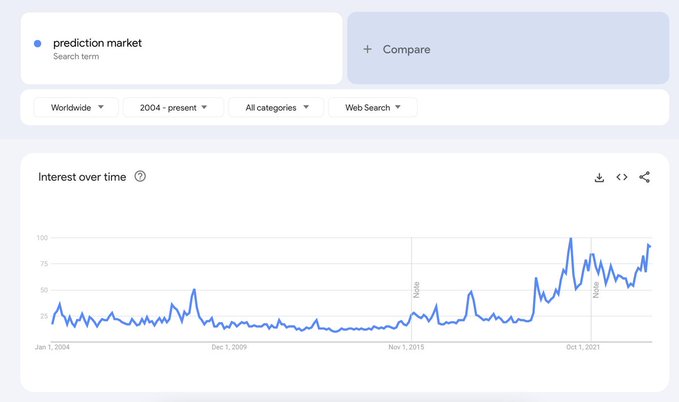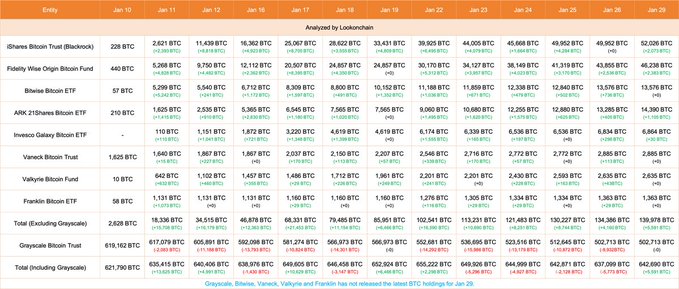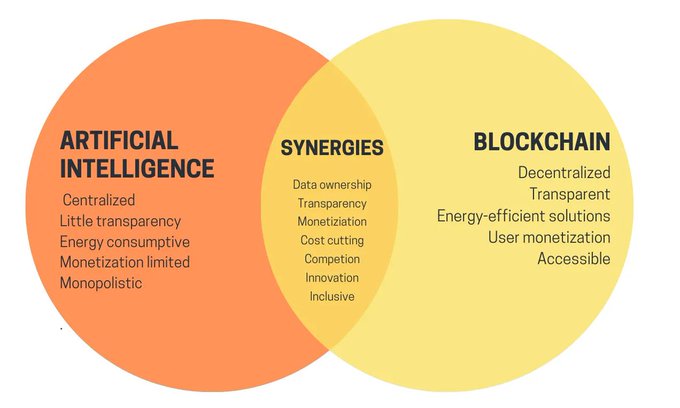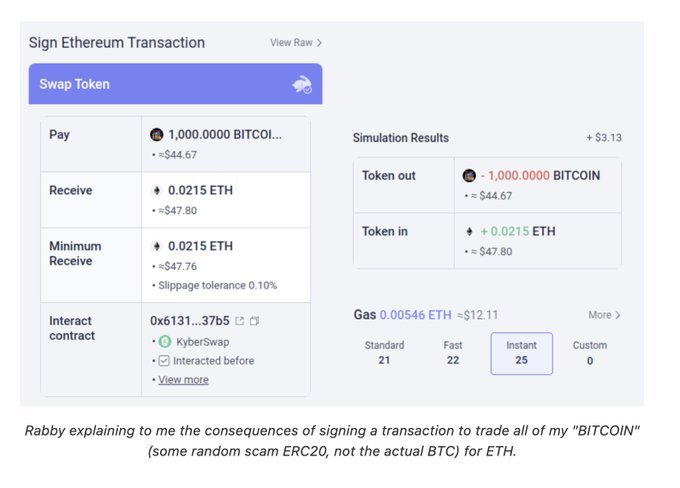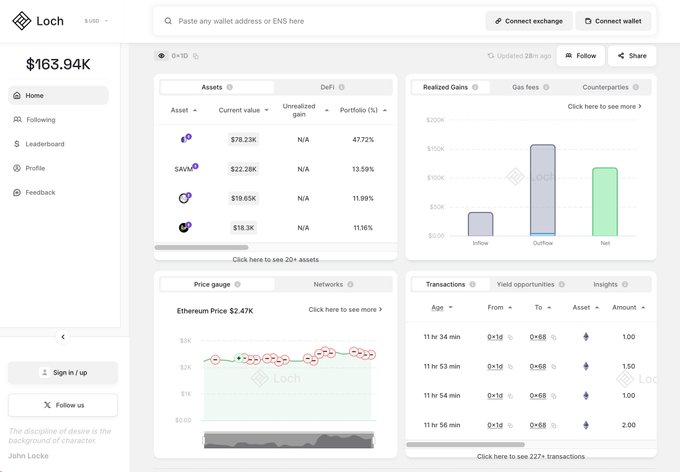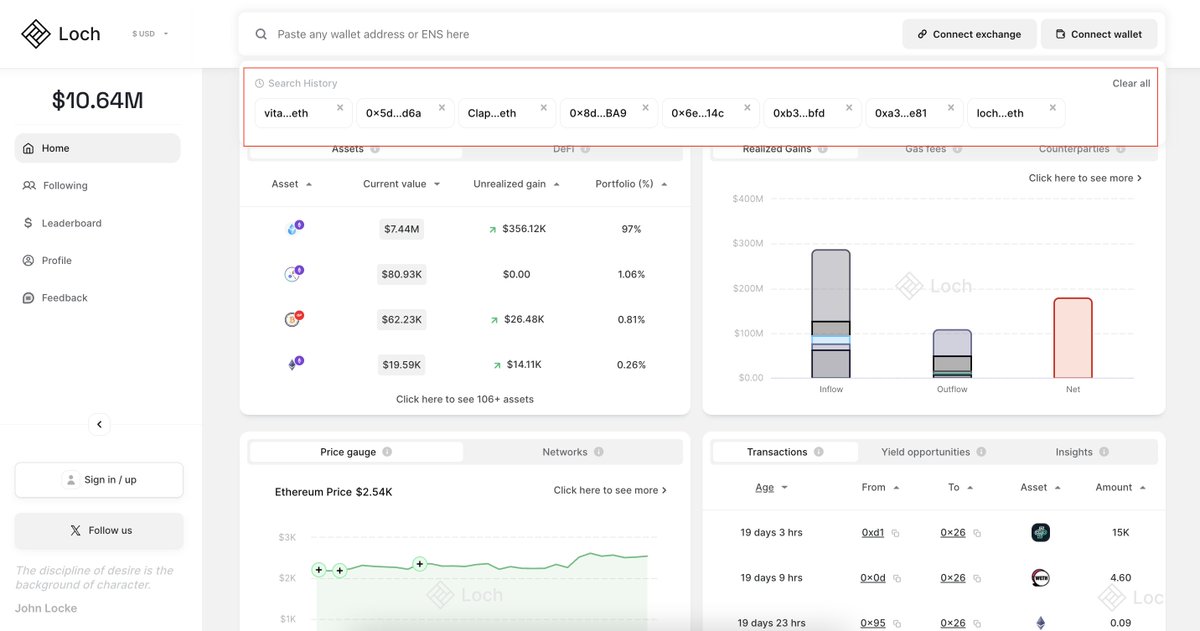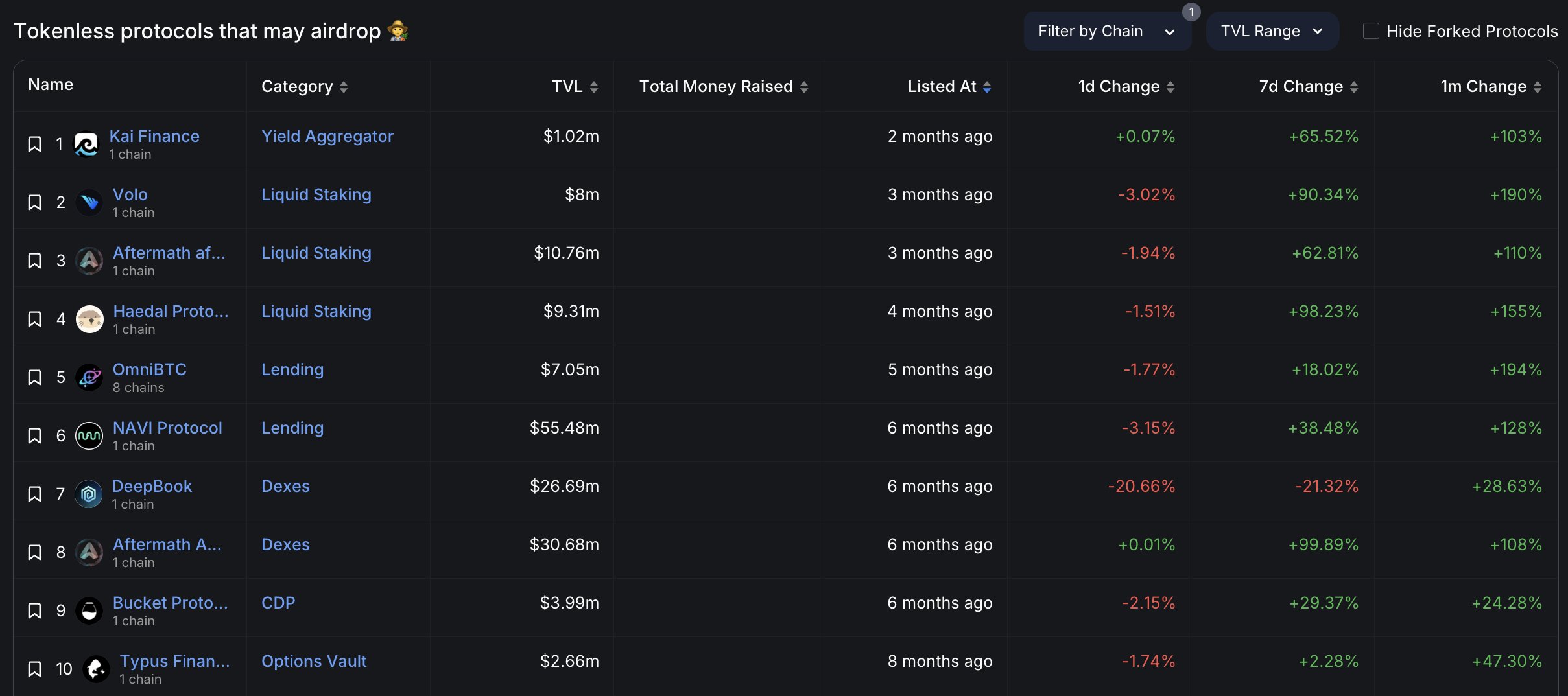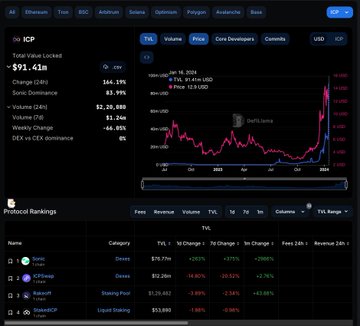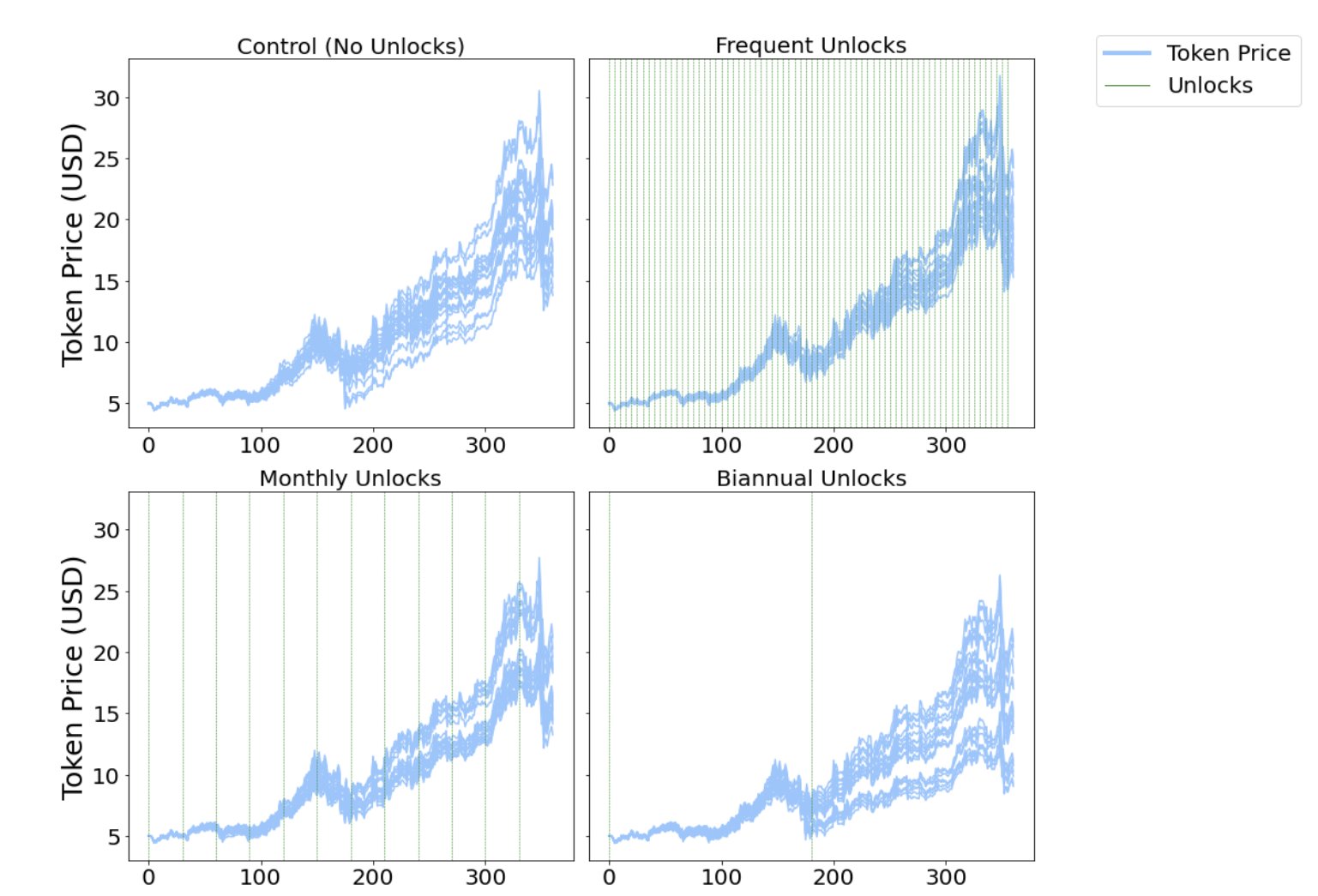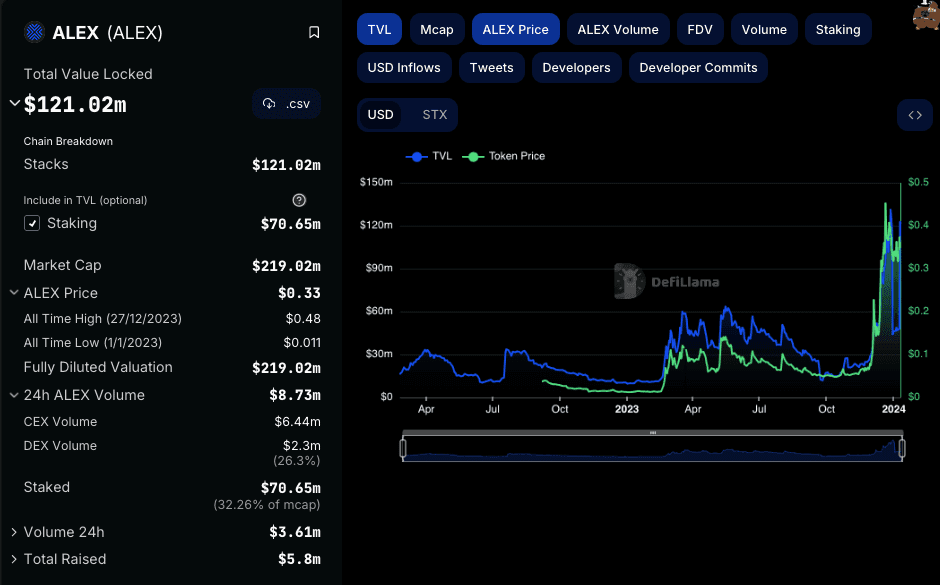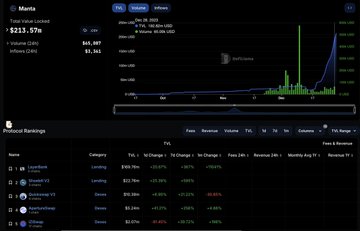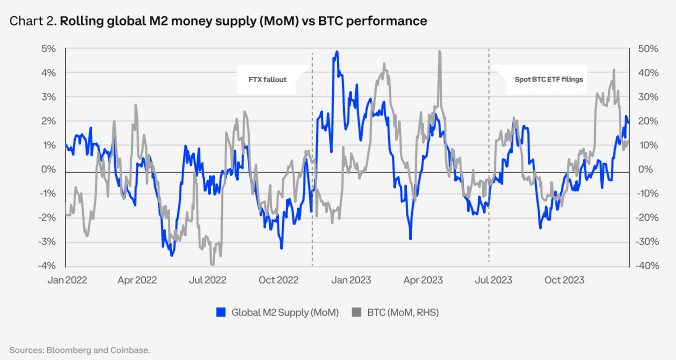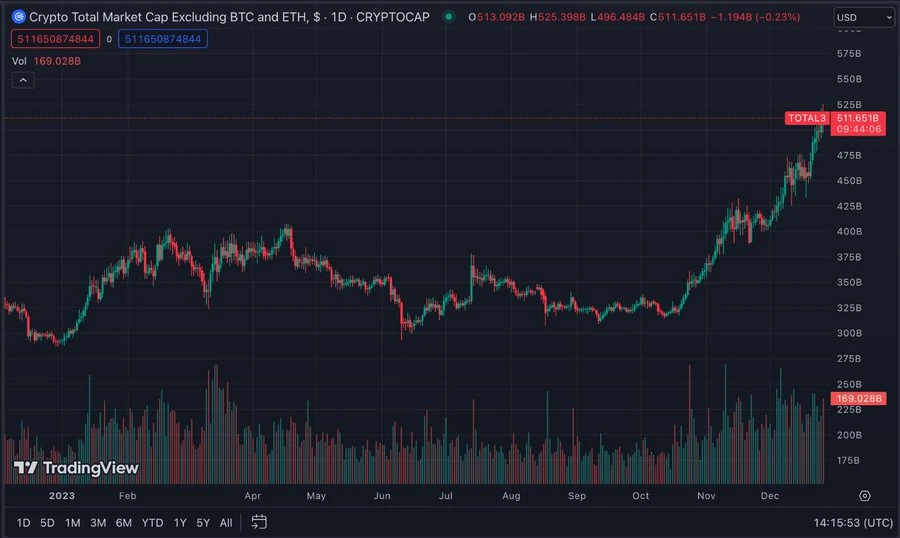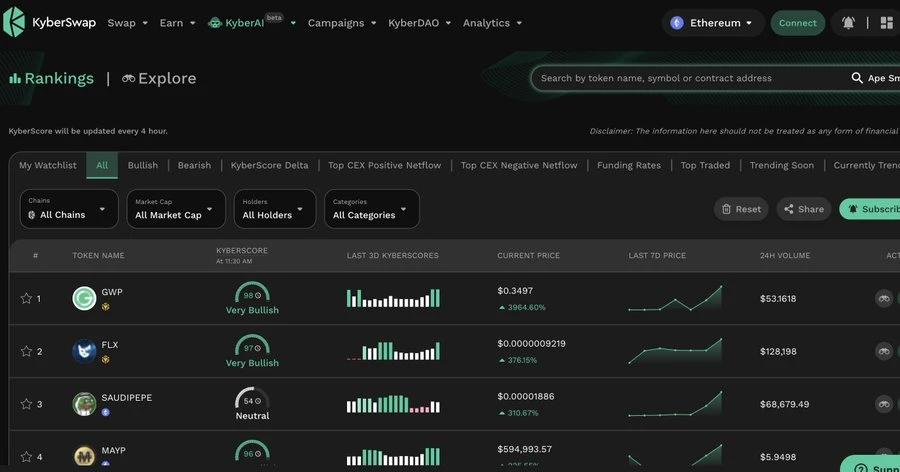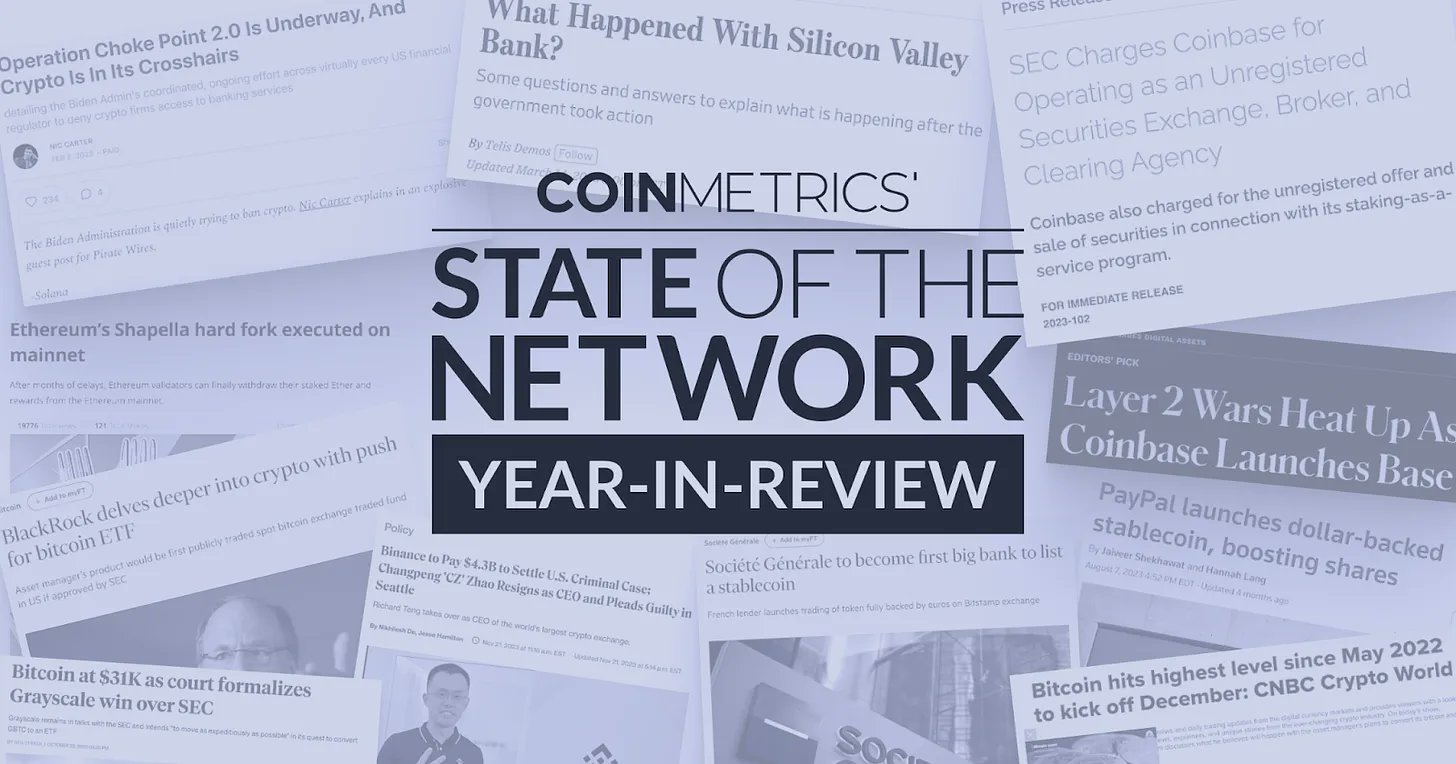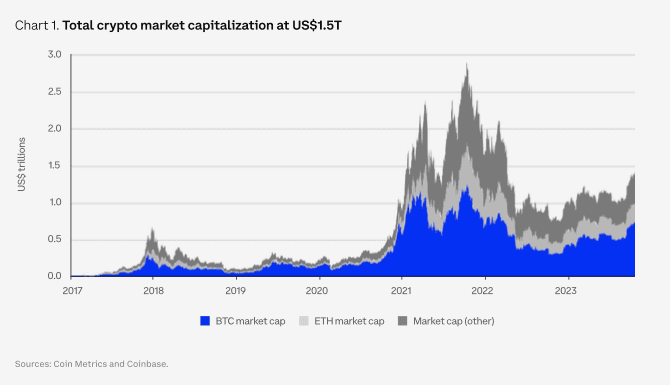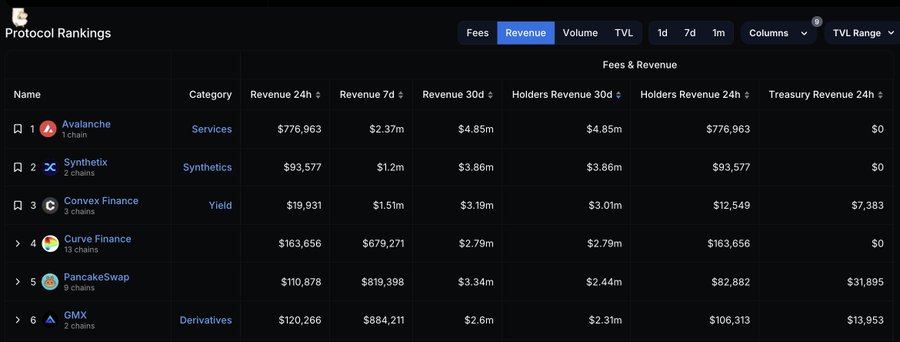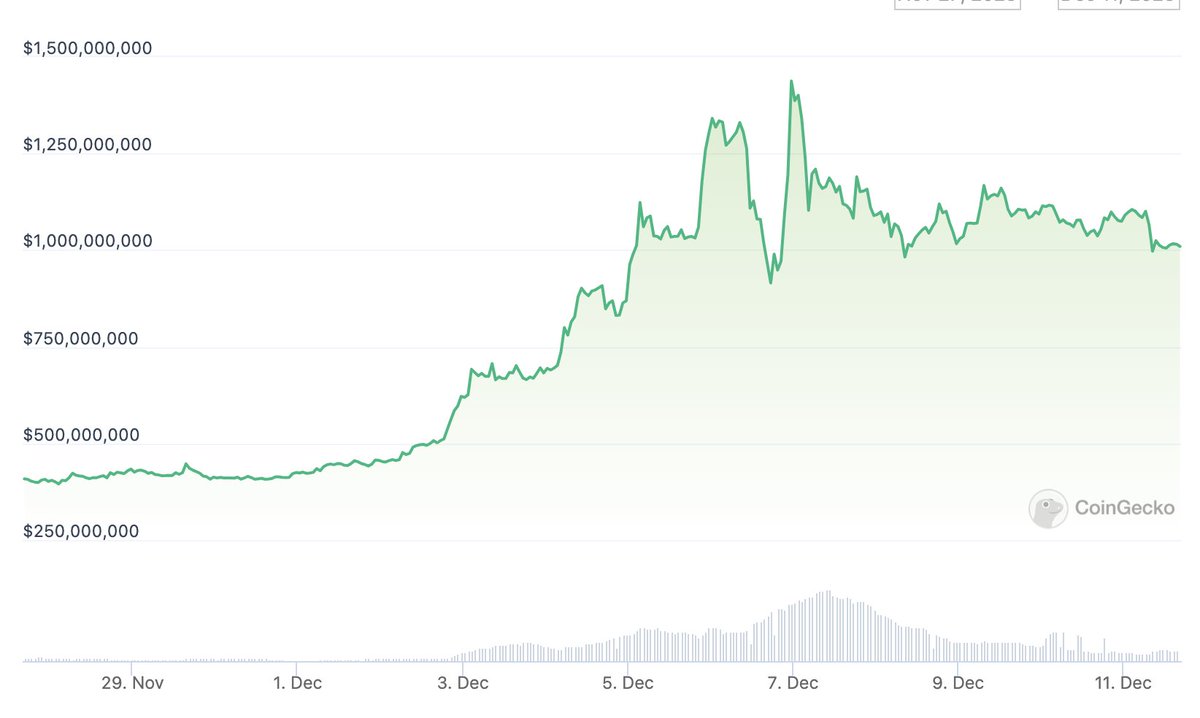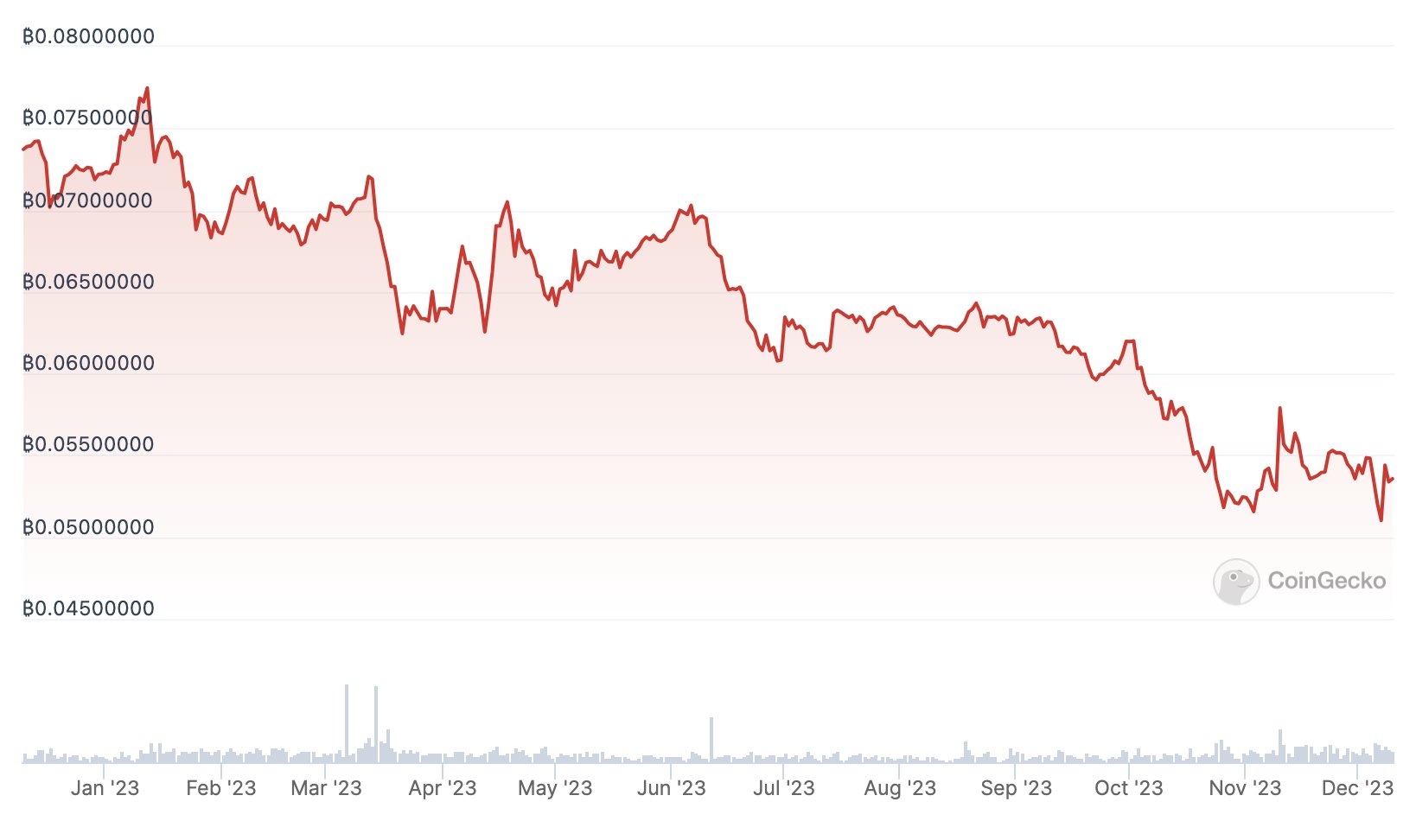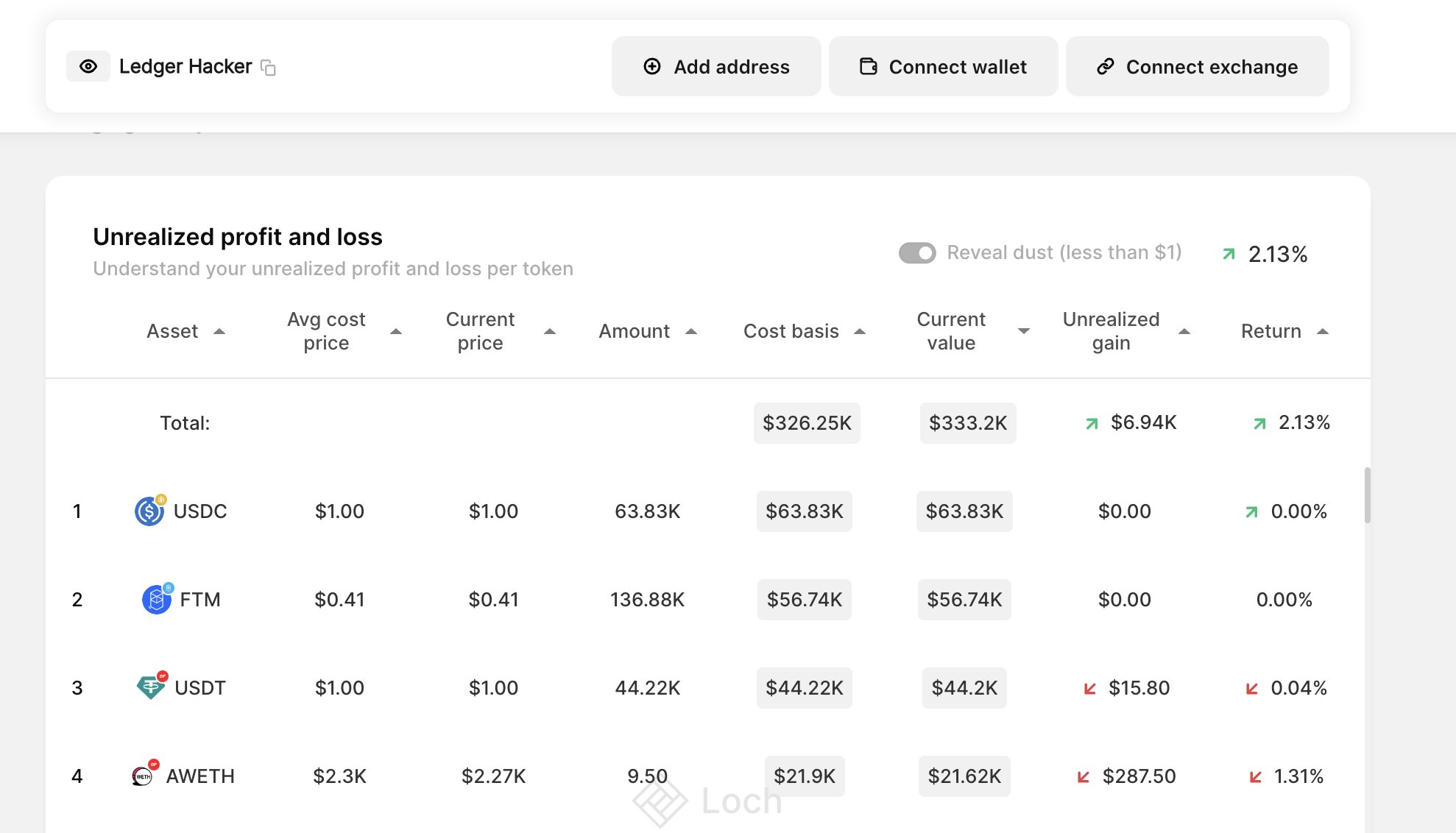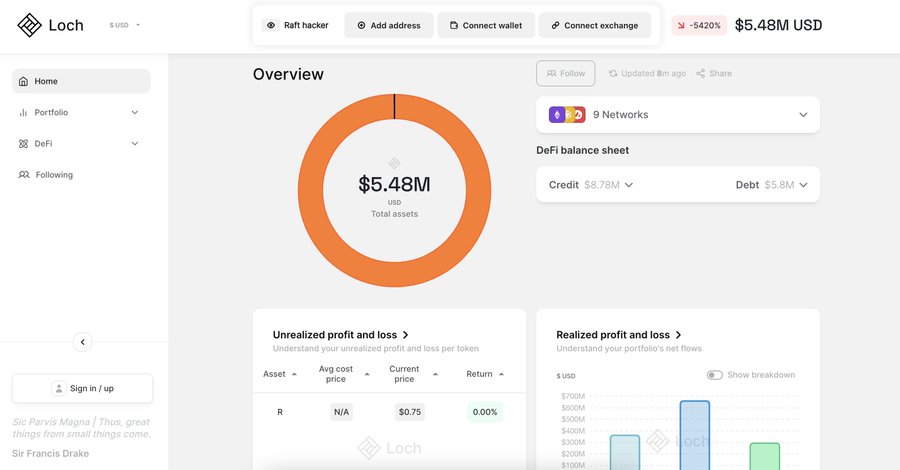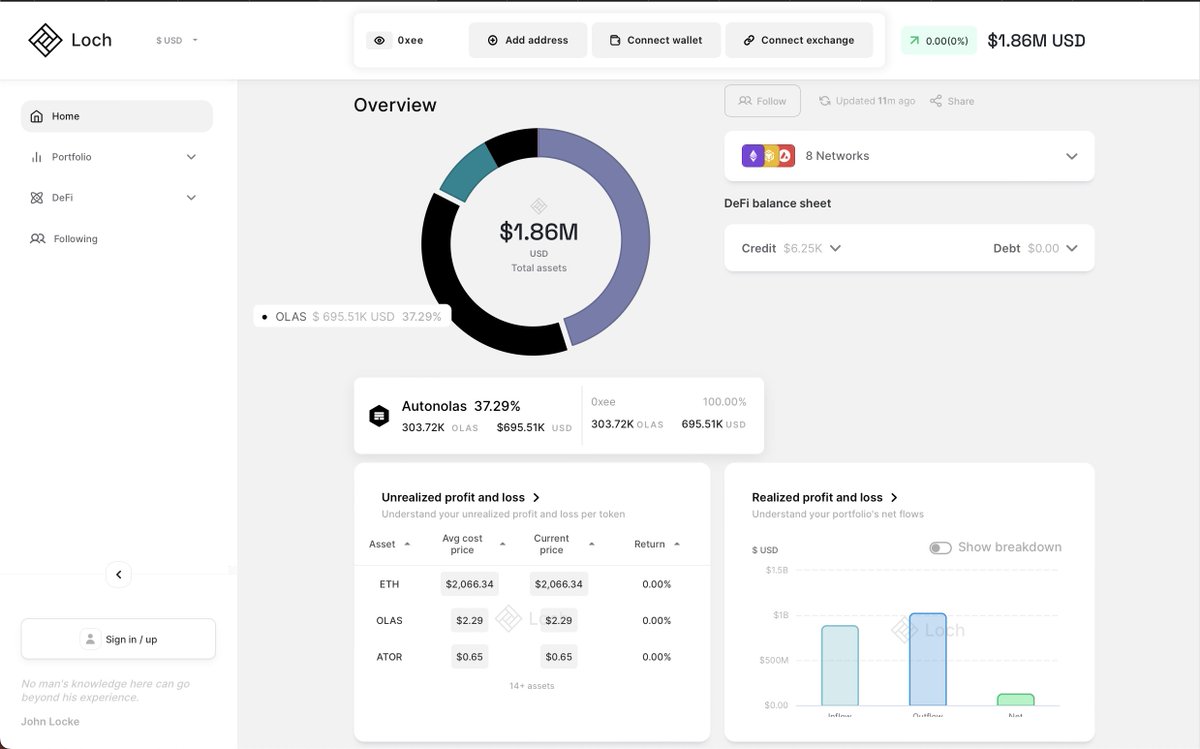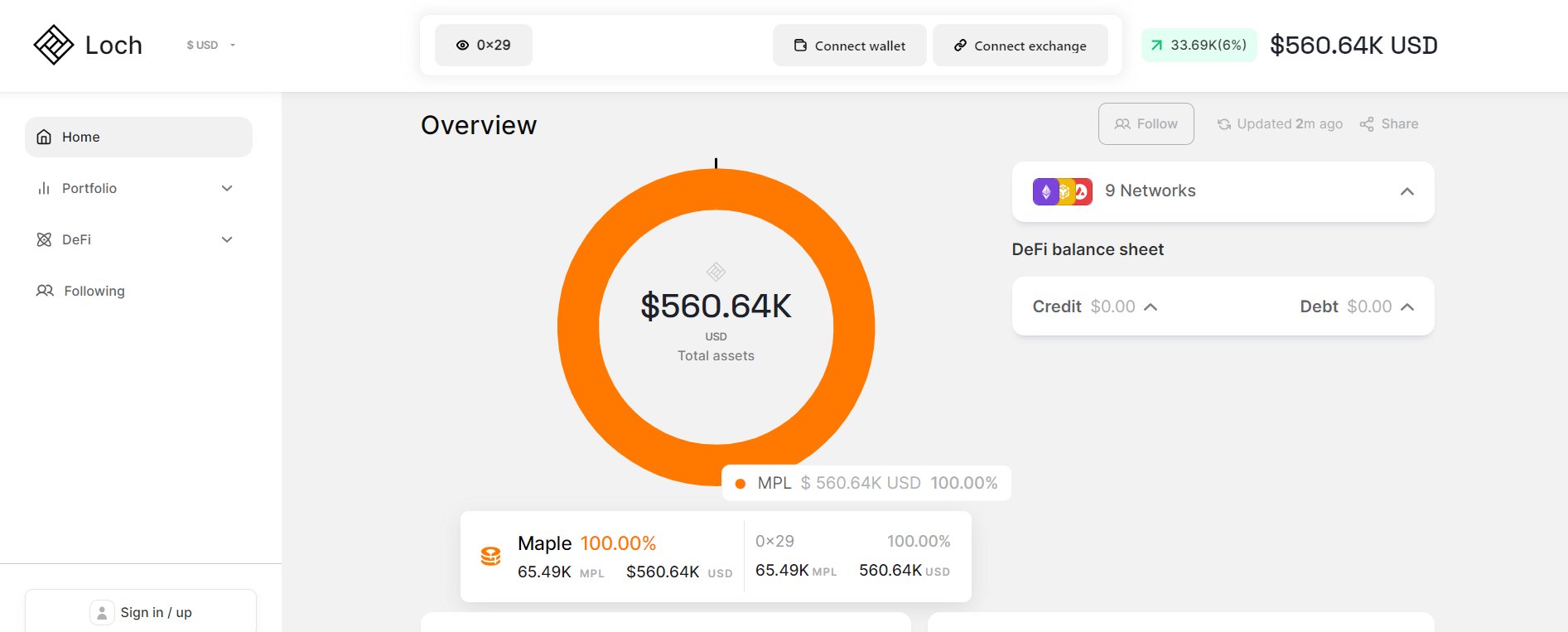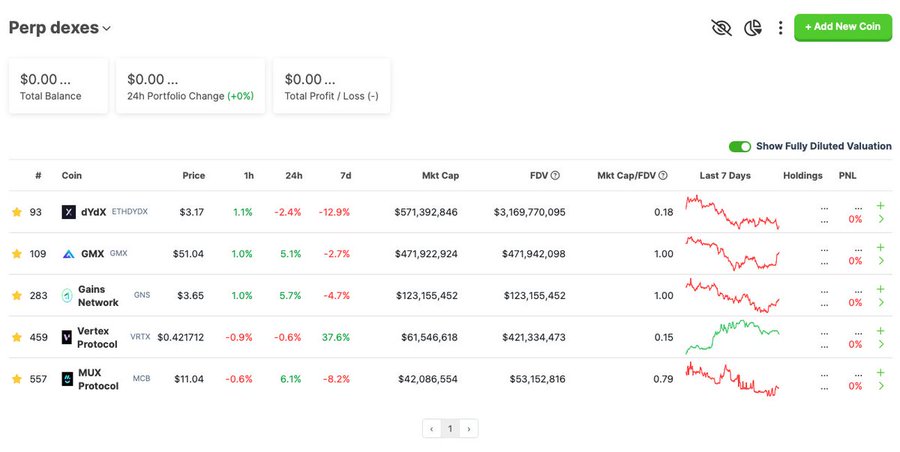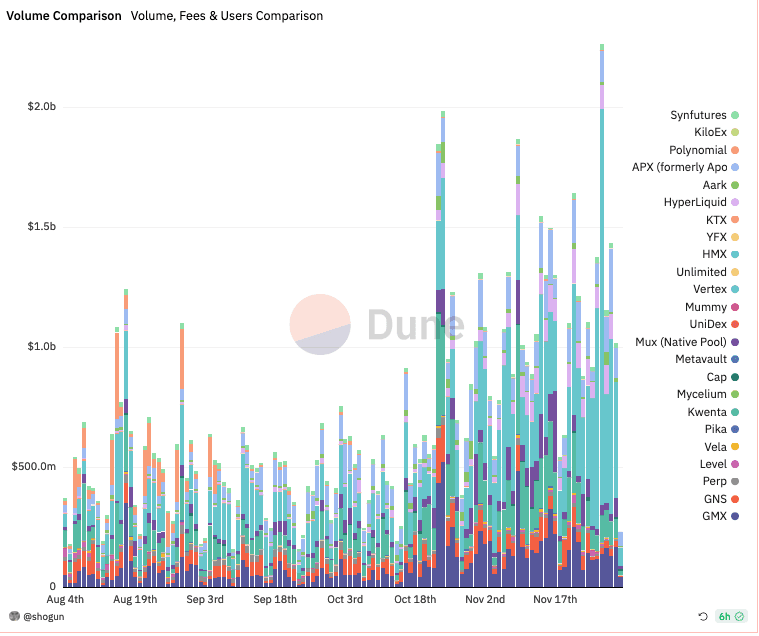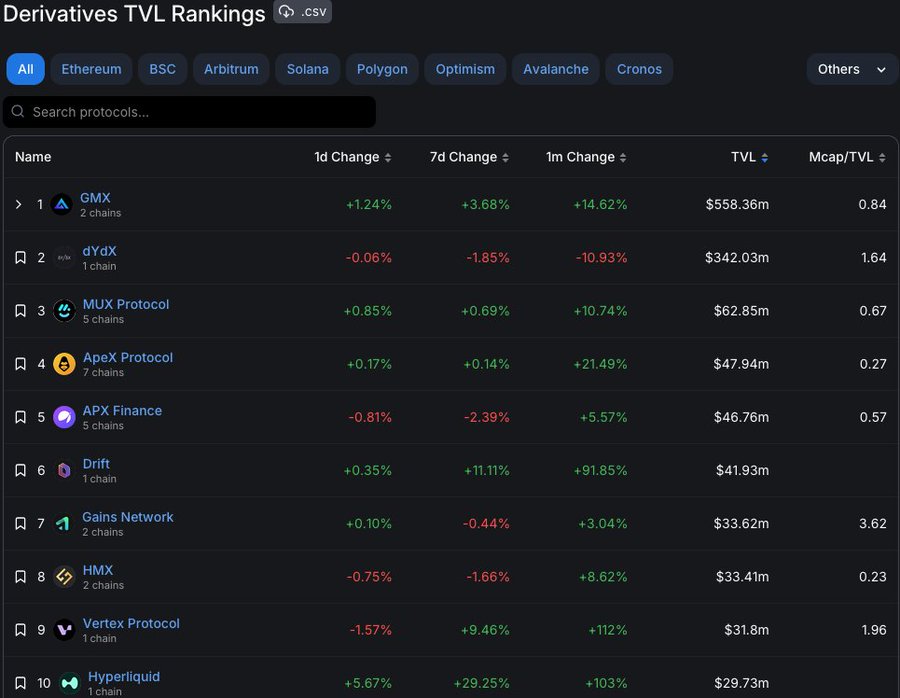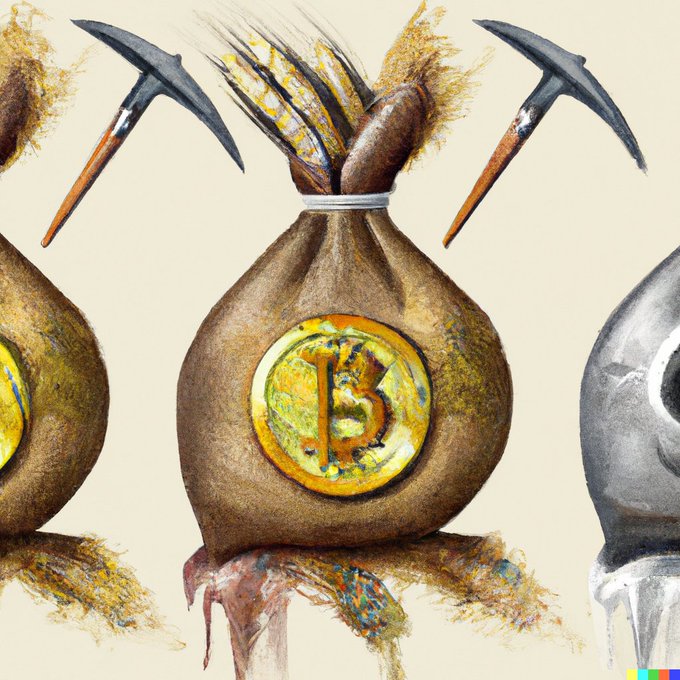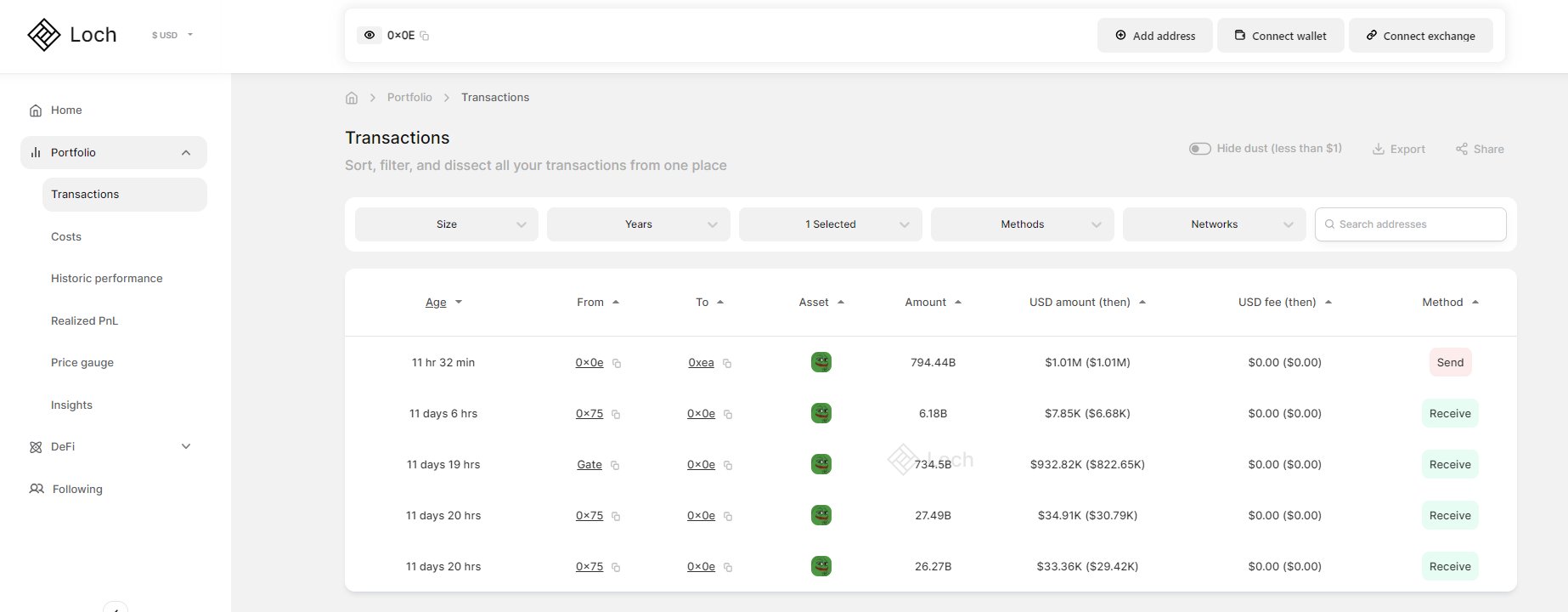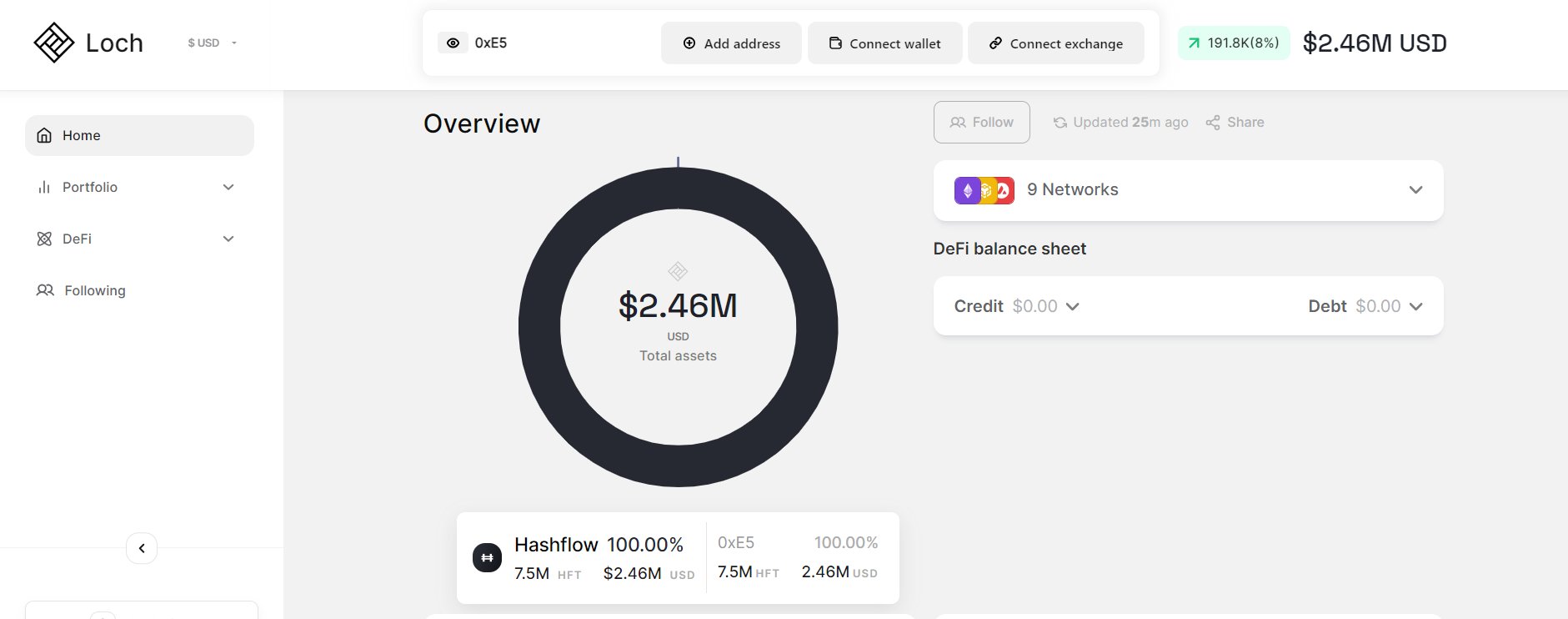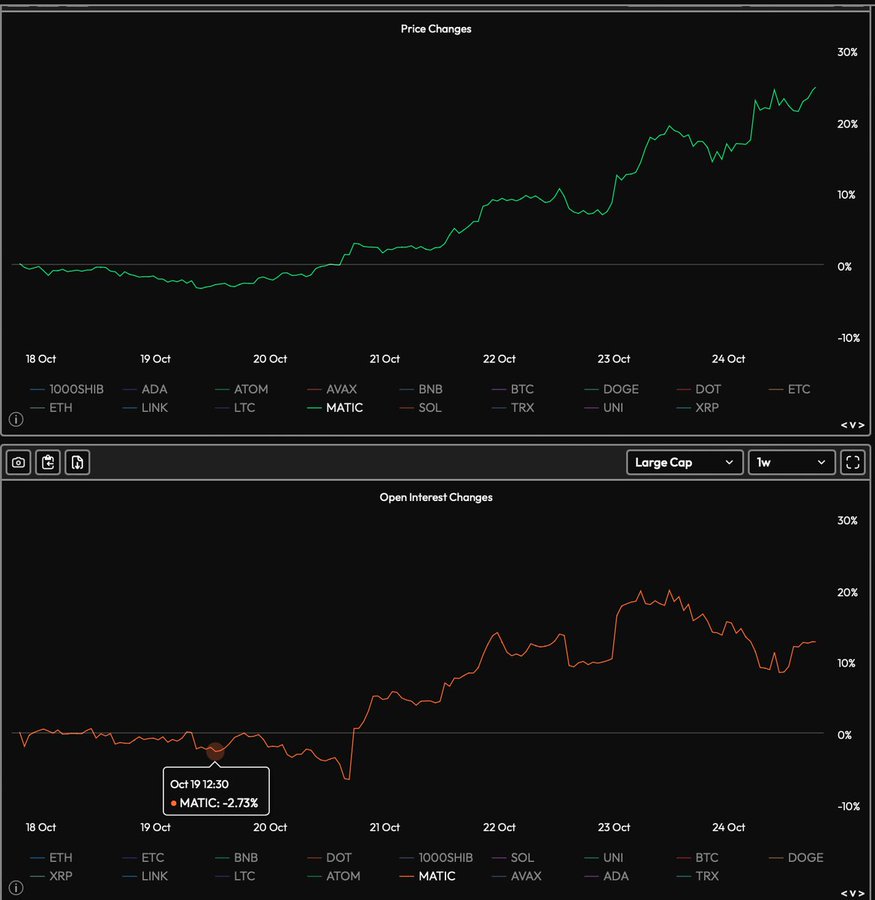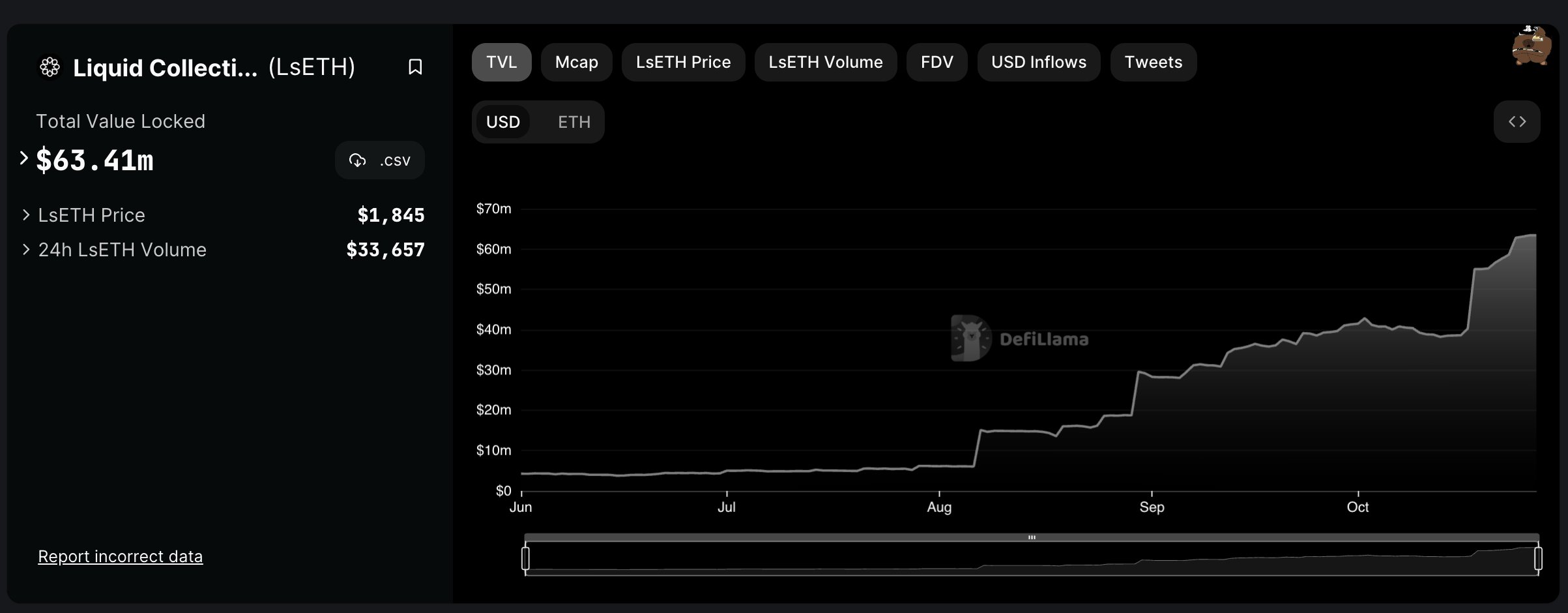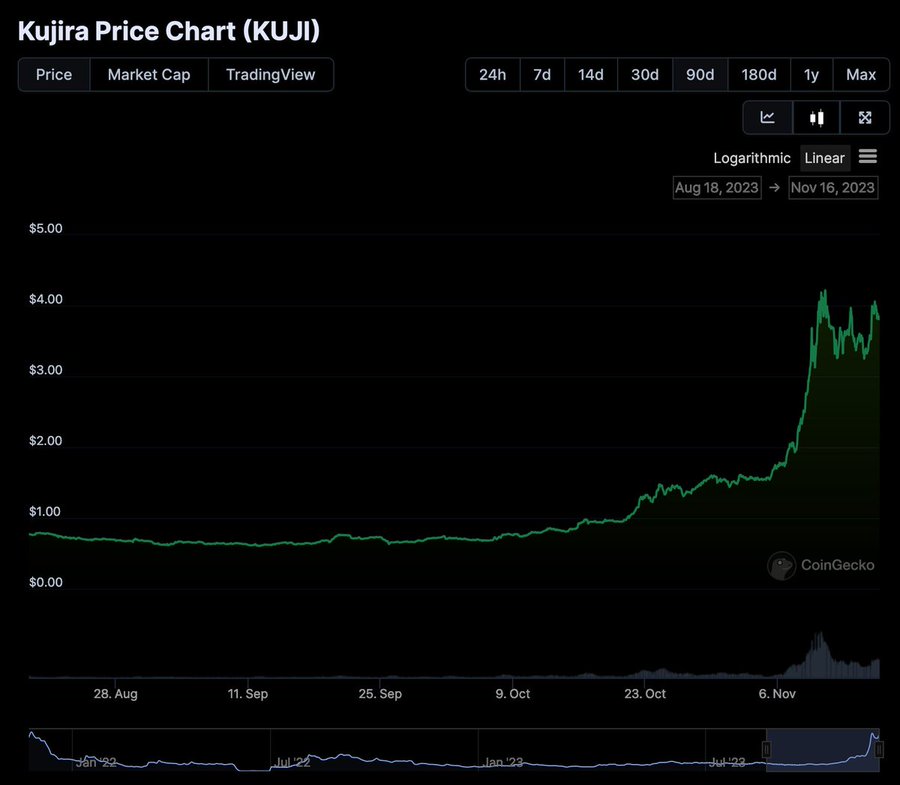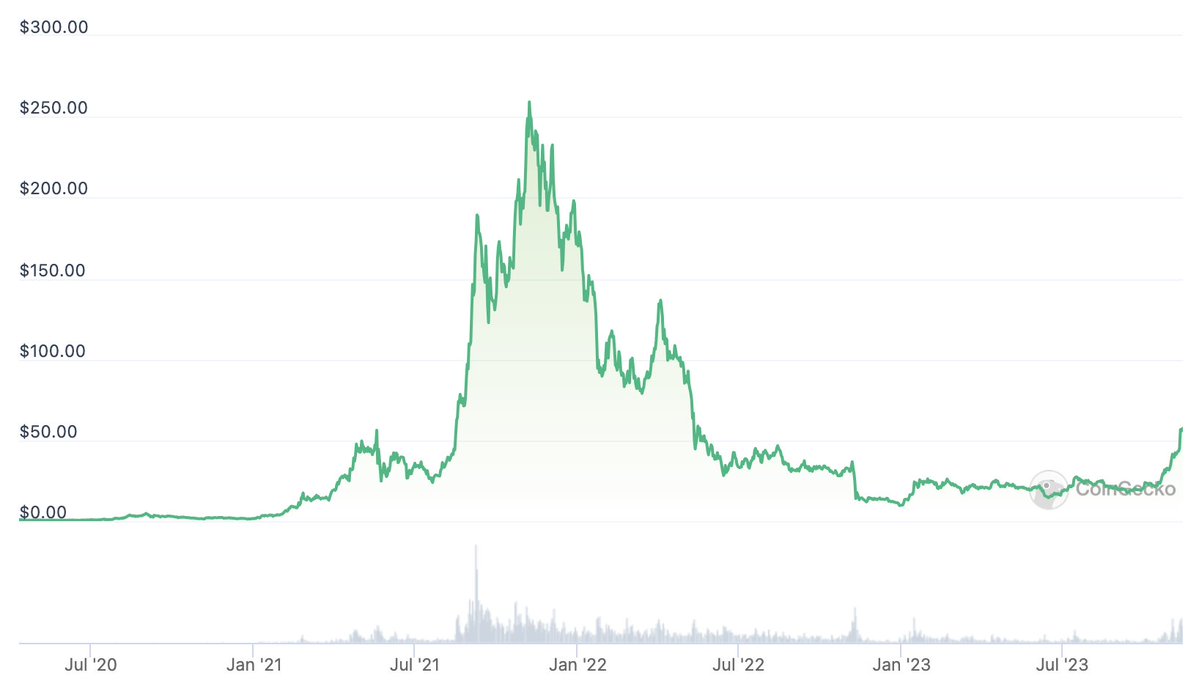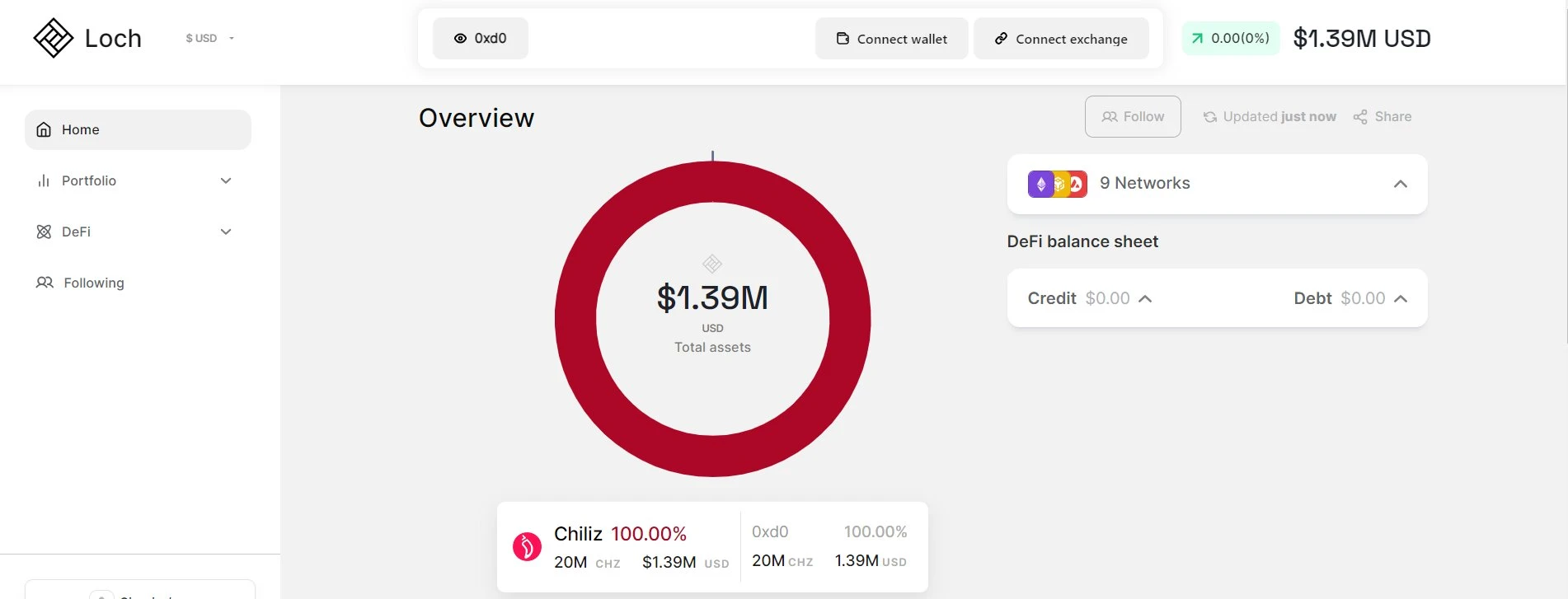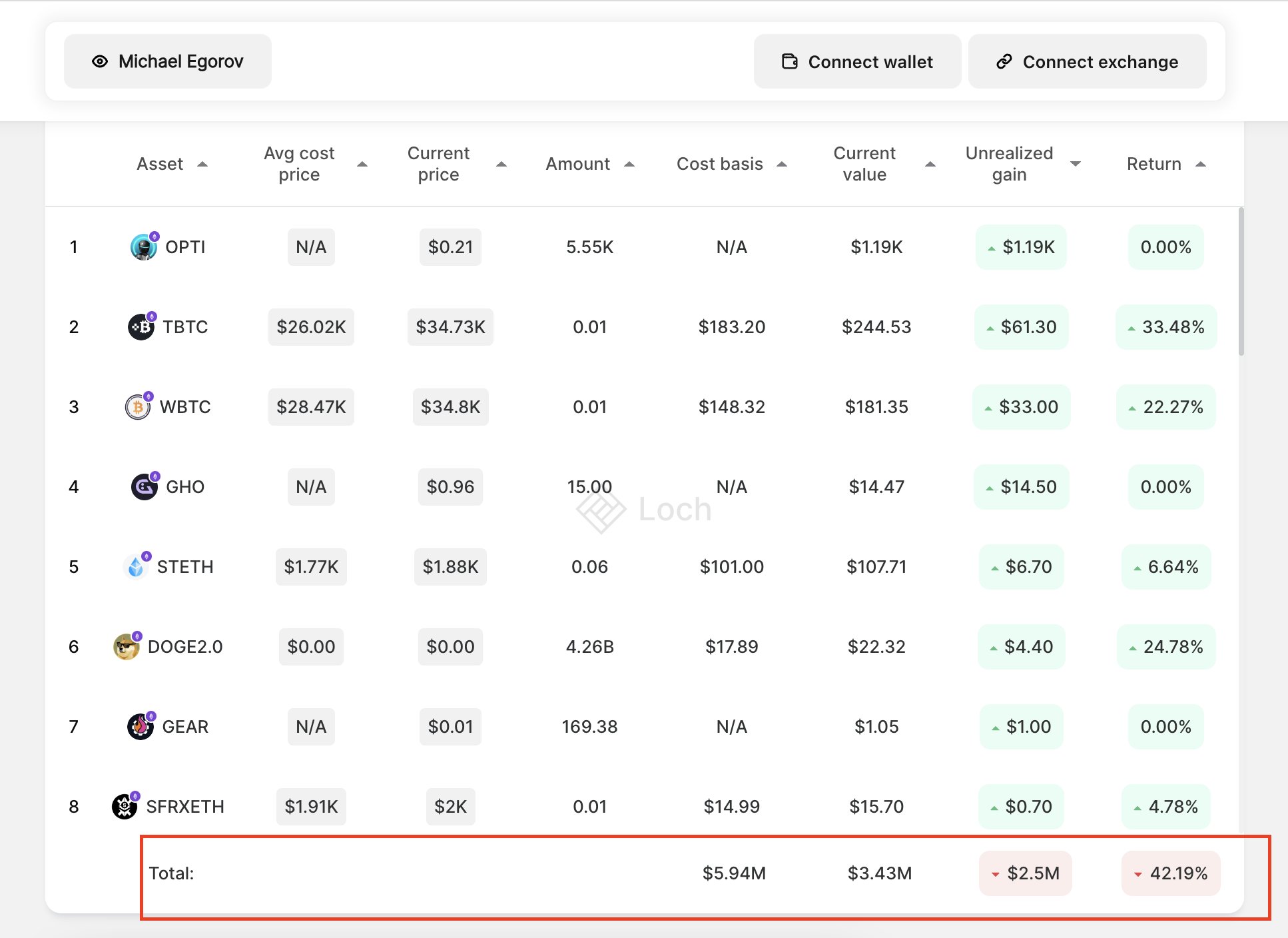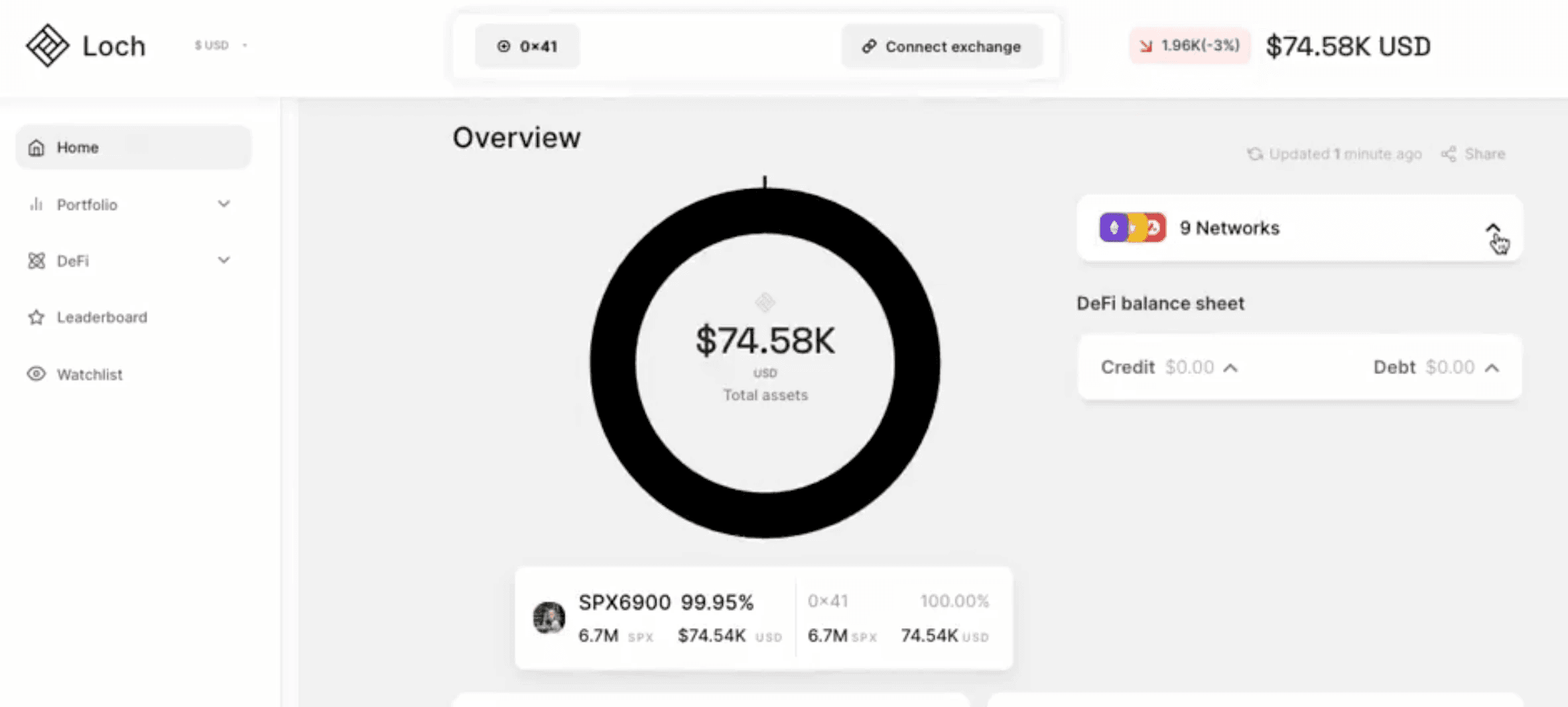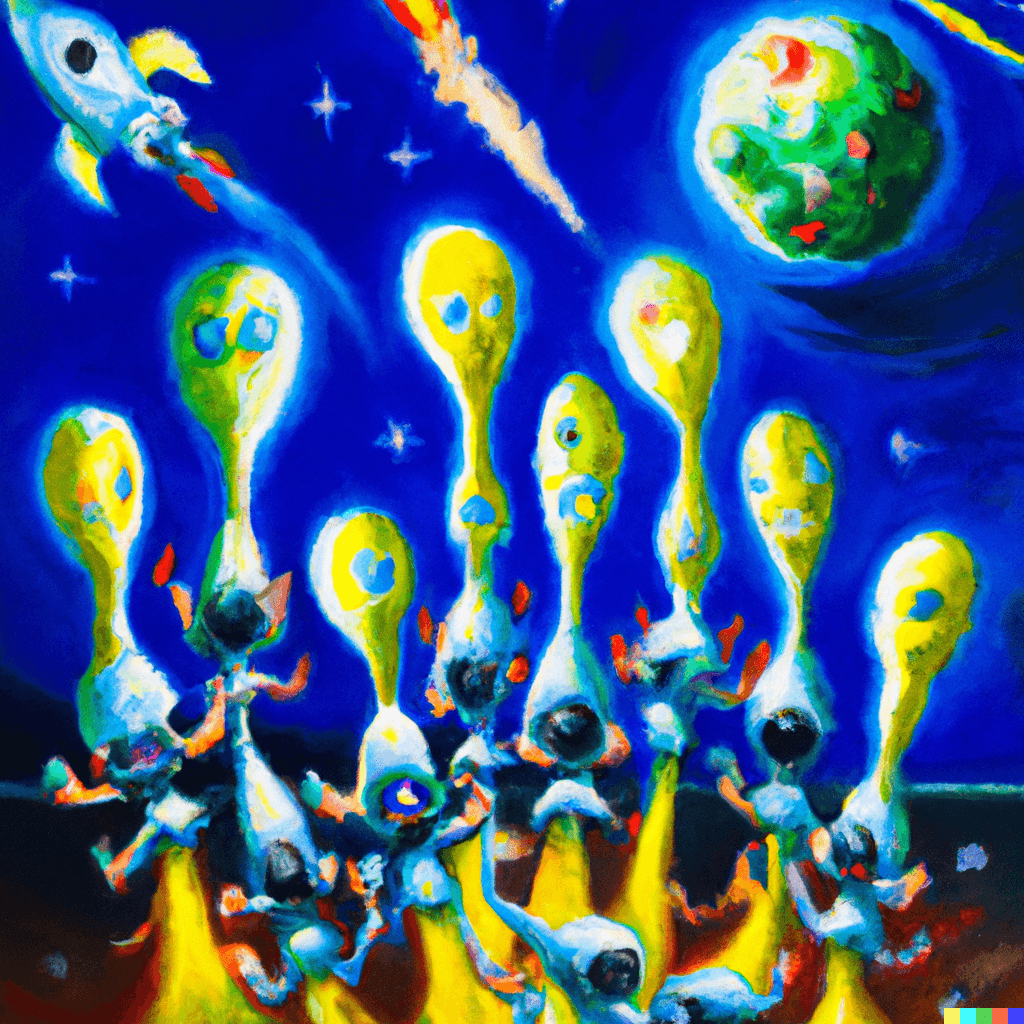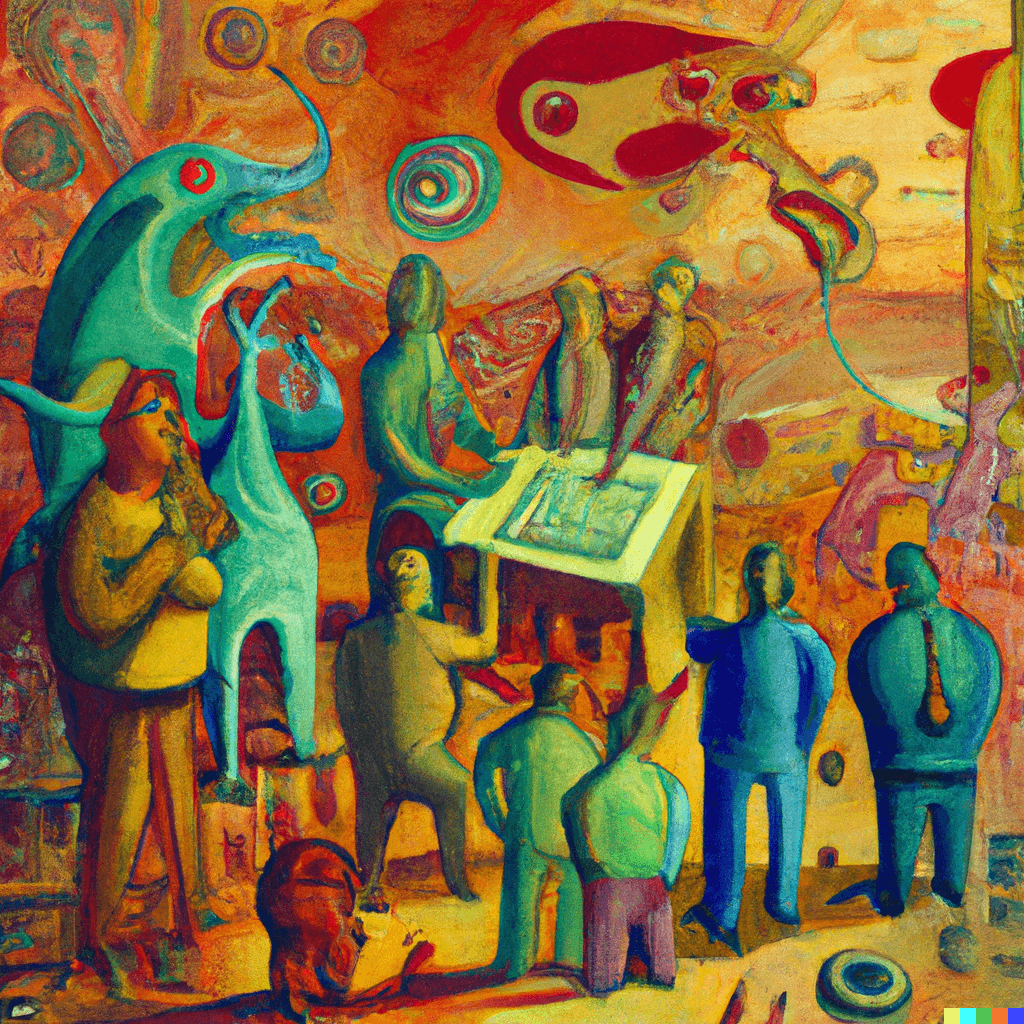A Deep Dive into Decentralized Science and Smart Money
Introduction:
In a rapidly evolving crypto landscape, the emergence of DeSci (Decentralized Science) projects is poised to revolutionize scientific research and development funding. Spearheaded by @Prithvir12, this thread provides a comprehensive analysis of the possibilities inherent in DeSci and how smart money is navigating this narrative. Powered by insights from @loch_chain, the exploration delves into a specific DeSci project, shedding light on its potential impact and the strategic moves of smart-money players.
Thread Highlights:
1. DeSci's Decentralized Funding Model:
@Prithvir12 initiates the exploration by highlighting how DeSci projects redefine scientific research and development funding. By operating in a decentralized manner, these projects introduce a range of benefits compared to traditional scientific funding models.
The difference between decentralized and traditional science lies in the approach to conducting research, funding models, and the overall structure of the scientific process. Here are key distinctions between the two:
Research Funding Model:
- Traditional Science: Research funding in traditional science is typically centralized, with grants and funding allocated by governmental bodies, private organizations, or academic institutions. Funding decisions are made by centralized authorities, and researchers often compete for limited resources.
- Decentralized Science: In decentralized science, funding is facilitated through crypto-economic incentives and blockchain technology. Projects may utilize decentralized finance (DeFi) mechanisms, tokenomics, and community-driven funding models, allowing broader participation in funding decisions.
Decision-Making and Governance:
- Traditional Science: Centralized authorities, such as government agencies or academic institutions, play a significant role in decision-making and governance. Researchers may need approval from these entities for project initiation, funding, and publication.
- Decentralized Science: Governance in decentralized science often involves the community of participants. Decision-making can be more democratic, with token holders or project contributors having a say in protocol upgrades, research direction, and funding allocation.
Access to Data and Collaboration:
- Traditional Science: Data access and collaboration in traditional science can be hindered by bureaucratic processes, data silos, and privacy concerns. Collaboration often occurs within established academic and institutional networks.
- Decentralized Science: Projects in decentralized science, leveraging blockchain and tokenized ecosystems, aim to create open, transparent, and collaborative environments. Data sharing can be facilitated through decentralized networks, promoting more efficient and secure collaboration.
Tokenomics and Incentives:
- Traditional Science: Researchers in traditional science are typically remunerated through institutional salaries, grants, or royalties. Incentives may be tied to academic recognition, career advancement, and institutional prestige.
- Decentralized Science: Crypto-economic incentives, often in the form of tokens, play a crucial role. Researchers, contributors, and participants may receive tokens as rewards for their contributions. The value of these tokens can be influenced by the success and adoption of the project.
Innovation and Speed:
- Traditional Science: Traditional scientific research can sometimes be slower due to the formalized processes, peer reviews, and institutional approvals. Innovation may face challenges in adapting quickly to emerging technologies.
- Decentralized Science: Decentralized science projects often emphasize speed and agility. The decentralized nature allows for quicker decision-making, rapid innovation, and the ability to adapt to changing circumstances.
Community Involvement:
- Traditional Science: While there is community involvement in the form of peer review, conferences, and academic collaborations, the level of direct community participation can be limited.
- Decentralized Science: Communities play a more active role in decentralized science, contributing not only to funding decisions but also to the governance, development, and success of the projects.
In summary, decentralized science introduces a paradigm shift by leveraging blockchain technology, crypto-economic incentives, and decentralized governance to create more inclusive, collaborative, and agile scientific ecosystems compared to traditional, centralized scientific models.
2. Addressing Inefficiencies in Patient Recruitment:
Using the example of patient recruitment and data access, the thread underscores the inefficiencies in the current system, including data fragmentation, referral tracking friction, and privacy concerns. The need for a solution becomes apparent.
3. Data Lake: A Decentralized Recruitment Platform:
The spotlight turns to Data Lake, a decentralized recruitment platform within the DeSci ecosystem. Fueled by the $LAKE token, this marketplace facilitates secure and privacy-centric collaboration between researchers and healthcare providers, addressing the existing challenges.
4. $LAKE Token Dynamics:
A detailed examination of the $LAKE token unfolds, revealing its dual role as both an access and incentive token. Researchers, holding a specified number of tokens, gain access to the platform. The token is then utilized to incentivize healthcare providers and patients for contributing data.
5. Token Flywheel Dynamics:
The thread presents a visual representation of the token flywheel, showcasing the interconnected dynamics between researchers, healthcare providers, patients, and the $LAKE token. This mechanism fosters a sustainable ecosystem where each participant plays a crucial role in the platform's functionality.
6. Smart-Money Insights and Portfolio Analysis:
@Prithvir12 provides insights into smart-money strategies by spotlighting an elite DEX trader's portfolio. With $LAKE comprising a significant portion, the trader's history of successful trades and a high conviction for $LAKE are emphasized.
7. Strategic Portfolio Building:
The thread delves into the trader's portfolio, revealing the strategic accumulation of $LAKE. Despite the seemingly modest position, the trader's consistent, gradual building of the portfolio demonstrates a high level of conviction in the project.
8. Closing Thoughts and Community Engagement:
In the concluding section, @Prithvir12 offers insights and invites engagement from the crypto community. Notable figures in the space are tagged, encouraging them to share their perspectives on the DeSci landscape and the specific project discussed.
Conclusion:
It is crucial to note that this information is not financial advice (NFA). The protocols mentioned carry inherent risks, and individuals are strongly encouraged to conduct their own research (DYOR). Additionally, members of the @loch_chain team may hold some of these tokens. Always exercise due diligence before making any financial decisions in the rapidly evolving DeFi space. The collaboration with @loch_chain adds credibility to the insights shared, and the open call for community feedback fosters a collaborative approach to understanding and navigating the evolving DeSci landscape.
Note: The entire thread and smart-money analysis can be accessed - https://twitter.com/Prithvir12/status/1746534432893550677
A Deep Dive into Decentralized Science and Smart Money
Introduction:
In a rapidly evolving crypto landscape, the emergence of DeSci (Decentralized Science) projects is poised to revolutionize scientific research and development funding. Spearheaded by @Prithvir12, this thread provides a comprehensive analysis of the possibilities inherent in DeSci and how smart money is navigating this narrative. Powered by insights from @loch_chain, the exploration delves into a specific DeSci project, shedding light on its potential impact and the strategic moves of smart-money players.
Thread Highlights:
1. DeSci's Decentralized Funding Model:
@Prithvir12 initiates the exploration by highlighting how DeSci projects redefine scientific research and development funding. By operating in a decentralized manner, these projects introduce a range of benefits compared to traditional scientific funding models.
The difference between decentralized and traditional science lies in the approach to conducting research, funding models, and the overall structure of the scientific process. Here are key distinctions between the two:
Research Funding Model:
- Traditional Science: Research funding in traditional science is typically centralized, with grants and funding allocated by governmental bodies, private organizations, or academic institutions. Funding decisions are made by centralized authorities, and researchers often compete for limited resources.
- Decentralized Science: In decentralized science, funding is facilitated through crypto-economic incentives and blockchain technology. Projects may utilize decentralized finance (DeFi) mechanisms, tokenomics, and community-driven funding models, allowing broader participation in funding decisions.
Decision-Making and Governance:
- Traditional Science: Centralized authorities, such as government agencies or academic institutions, play a significant role in decision-making and governance. Researchers may need approval from these entities for project initiation, funding, and publication.
- Decentralized Science: Governance in decentralized science often involves the community of participants. Decision-making can be more democratic, with token holders or project contributors having a say in protocol upgrades, research direction, and funding allocation.
Access to Data and Collaboration:
- Traditional Science: Data access and collaboration in traditional science can be hindered by bureaucratic processes, data silos, and privacy concerns. Collaboration often occurs within established academic and institutional networks.
- Decentralized Science: Projects in decentralized science, leveraging blockchain and tokenized ecosystems, aim to create open, transparent, and collaborative environments. Data sharing can be facilitated through decentralized networks, promoting more efficient and secure collaboration.
Tokenomics and Incentives:
- Traditional Science: Researchers in traditional science are typically remunerated through institutional salaries, grants, or royalties. Incentives may be tied to academic recognition, career advancement, and institutional prestige.
- Decentralized Science: Crypto-economic incentives, often in the form of tokens, play a crucial role. Researchers, contributors, and participants may receive tokens as rewards for their contributions. The value of these tokens can be influenced by the success and adoption of the project.
Innovation and Speed:
- Traditional Science: Traditional scientific research can sometimes be slower due to the formalized processes, peer reviews, and institutional approvals. Innovation may face challenges in adapting quickly to emerging technologies.
- Decentralized Science: Decentralized science projects often emphasize speed and agility. The decentralized nature allows for quicker decision-making, rapid innovation, and the ability to adapt to changing circumstances.
Community Involvement:
- Traditional Science: While there is community involvement in the form of peer review, conferences, and academic collaborations, the level of direct community participation can be limited.
- Decentralized Science: Communities play a more active role in decentralized science, contributing not only to funding decisions but also to the governance, development, and success of the projects.
In summary, decentralized science introduces a paradigm shift by leveraging blockchain technology, crypto-economic incentives, and decentralized governance to create more inclusive, collaborative, and agile scientific ecosystems compared to traditional, centralized scientific models.
2. Addressing Inefficiencies in Patient Recruitment:
Using the example of patient recruitment and data access, the thread underscores the inefficiencies in the current system, including data fragmentation, referral tracking friction, and privacy concerns. The need for a solution becomes apparent.
3. Data Lake: A Decentralized Recruitment Platform:
The spotlight turns to Data Lake, a decentralized recruitment platform within the DeSci ecosystem. Fueled by the $LAKE token, this marketplace facilitates secure and privacy-centric collaboration between researchers and healthcare providers, addressing the existing challenges.
4. $LAKE Token Dynamics:
A detailed examination of the $LAKE token unfolds, revealing its dual role as both an access and incentive token. Researchers, holding a specified number of tokens, gain access to the platform. The token is then utilized to incentivize healthcare providers and patients for contributing data.
5. Token Flywheel Dynamics:
The thread presents a visual representation of the token flywheel, showcasing the interconnected dynamics between researchers, healthcare providers, patients, and the $LAKE token. This mechanism fosters a sustainable ecosystem where each participant plays a crucial role in the platform's functionality.
6. Smart-Money Insights and Portfolio Analysis:
@Prithvir12 provides insights into smart-money strategies by spotlighting an elite DEX trader's portfolio. With $LAKE comprising a significant portion, the trader's history of successful trades and a high conviction for $LAKE are emphasized.
7. Strategic Portfolio Building:
The thread delves into the trader's portfolio, revealing the strategic accumulation of $LAKE. Despite the seemingly modest position, the trader's consistent, gradual building of the portfolio demonstrates a high level of conviction in the project.
8. Closing Thoughts and Community Engagement:
In the concluding section, @Prithvir12 offers insights and invites engagement from the crypto community. Notable figures in the space are tagged, encouraging them to share their perspectives on the DeSci landscape and the specific project discussed.
Conclusion:
It is crucial to note that this information is not financial advice (NFA). The protocols mentioned carry inherent risks, and individuals are strongly encouraged to conduct their own research (DYOR). Additionally, members of the @loch_chain team may hold some of these tokens. Always exercise due diligence before making any financial decisions in the rapidly evolving DeFi space. The collaboration with @loch_chain adds credibility to the insights shared, and the open call for community feedback fosters a collaborative approach to understanding and navigating the evolving DeSci landscape.
Note: The entire thread and smart-money analysis can be accessed - https://twitter.com/Prithvir12/status/1746534432893550677
Continue reading
Continue reading

A Deep Dive into Decentralized Science and Smart Money
Jan 19, 2024

A Deep Dive into Decentralized Science and Smart Money
Jan 19, 2024




